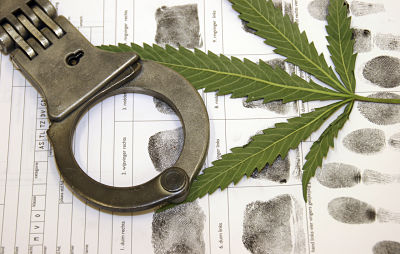Most people know that driving while under the influence of alcohol is illegal in all 50 states. Many are unaware, however, that in Texas, drivers can be charged with DWI even if they haven’t ingested any alcohol, but are under the influence of marijuana. These types of charges tend to be more complicated than those involving allegations of intoxication via ingestion of alcohol, as Texas law doesn’t actually specify how much marijuana causes impairment. Because Texas law is more confusing when it comes to prosecuting marijuana DWIs, drivers who have been accused of this offense should be sure to speak with an experienced Houston DWI lawyer who can advise them.
Texas Marijuana DWI Law
Under Texas law, a person can be charged with DWI if they are under the influence of marijuana and, as a result, don’t have the normal use of their mental or physical faculties. Because the consumption of marijuana is illegal in Texas, any motorist who has any amount of the substance in his or her system while driving could be charged with DWI. As mentioned previously, there is, however, no state law that indicates the level of marijuana that causes impairment in a driver.
Unfortunately, this means that drivers with even a tiny amount of the substance in their systems could face the same penalties as drivers who drive while extremely intoxicated. For instance, a person convicted of a first offense marijuana DWI could still be imprisoned for up to six months, have to pay a $2,000 fine, and have his or her license suspended for up to a year. Like alcohol-related DWIs, the penalties become even harsher for those who are accused of subsequent offenses.

Proof of Marijuana Intoxication
There are no per se drug-related DWI laws in Texas. In other words, while drivers may know that .08 percent is the legal limit of alcohol that they can have in their systems while driving, there is no similar legal limit for THC. Methods of determining marijuana intoxication are also much less reliable than those used for alcohol. For instance, some courts have refused to accept blood and urine samples as proof of marijuana intoxication because THC, the psychoactive component of marijuana, can stay in a person’s system for up to a month after consumption.
The reliability of field sobriety tests in determining intoxication has also come into question in many courts across the U.S. For these reasons, prosecutors often rely on police officer testimony in proving that a motorist was impaired while driving, which could include everything from the testimony that a driver had slurred speech to his or her failure to pass a field sobriety test. Fortunately, an experienced attorney can often counter this evidence and get a defendant’s charges reduced or even dismissed.
Getting Legal Help
If you were recently arrested for DWI in Texas, please call (281) 280-0100 to speak with one of the dedicated Houston DWI lawyers at The Law Offices of Tad Nelson & Associates about your legal options, including how to best defend yourself against these charges.